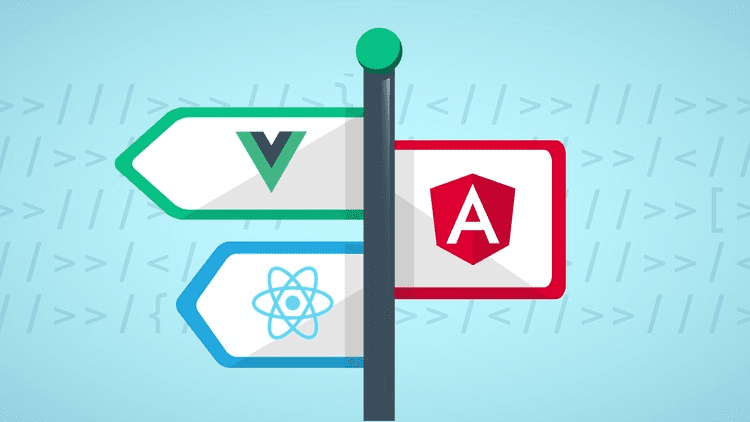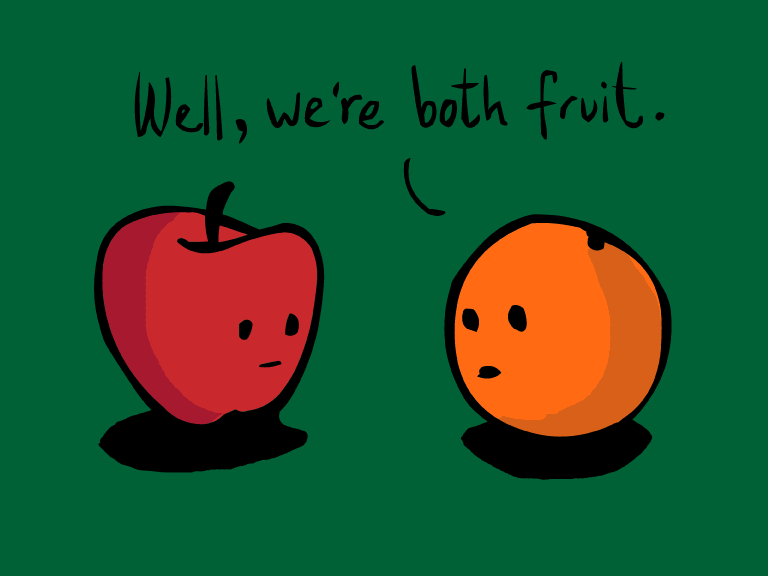JS: React/Angular/Vue: comparing front-end frameworks

The choice of a JavaScript framework for a web app can is not always an obvious thing, even for the industry workers with experience.
You want to use the best and most efficient tools for your software - but how to make sure your choice will 100% satisfy the requirements of your project? For example, both Angular and React are very popular today and now there is also Vue that’s been getting a lot of attention lately.
It may be a bit confusing especially if you are not a developer and simply want to know which framework to choose. So we decided to list down the pros and cons of all three frameworks so you can have an idea which one suits you best.

Overview of the three frameworks
Before we start the comparison let’s have a look at these frameworks and see what they are about.
Angular is a TypeScript-based framework, which was developed by Google. The latest release is version 4 and Google, Wix and Forbes use Angular.
React is mostly referred to as “JavaScript library for UI building”.
React was developed by Facebook and it is used by many well-known companies, like PayPal, Twitter, Pinterest, etc.
Last but not least is Vue – “intuitive, fast and composable MVVM for UI building”. It’s been growing rapidly since 2016 and already gained recognition among many companies, like Nintendo.

As you can notice, Angular and React are supported by huge companies while Vue is managed by a small team of people who get support on Patreon. Some may think it’s a disadvantage while others believe that the size of Vue team leads to clearer code that is not so over-engineered.
Comparing the frameworks step by step
First comes the question of components. A component receives an input and as an output, returns a rendered UI template. So the components have to be easy to reuse either on the web page or among other components.
All our three frameworks are component-based and among them, React and Vue are both great at handling dumb components.
Next, we compare TypeScript vs ES6 (or ES5). Angular is the one that relies on TypeScript and this results in more consistency and introduces such concepts as static types or decorators.
Static types come in handy for the code intelligence tools and they supposedly decrease the amount of bugs in the app so you may want to pay attention to them.
React uses JS ES6 and Vue can use either ES6 or ES5. Within React, you can use Flow for type-checking and you can also incorporate Flow into VueJS.

Moving on, next are the templates.
React uses JSX, which is an optional processor for HTML-like syntax that will be compiled in JavaScript. Even though it has some little perks, JSX is great for development because everything is in one place and code completion and compile-time checks work nicely.
As well, JSX implies that everything in React should be in JS and this is also good, because if we compare JS and HTML, JavaScript is more powerful.
Angular uses enhanced HTML templates with special Angular language. So for using them you will have to learn Angular-specific syntax.
As for Vue, it features “single-file components” – meaning the developer gets syntax highlighting, CSS support and easy use of preprocessors. Some say that JSX is better for debugging but Vue also shows HTML syntax errors by converting HTML to render functions.

Framework vs Library
Angular is more a framework than a library and can be considered a “complete solution” that provides you with a pleasant start.
It offers you strong opinions on how your app should be structured and has more functionality. Nevertheless, Angular has a bit confusing nest of build tools, linters and time-sinks.
React and Vue, in comparison, are universally flexible. Their libraries can be paired with all sorts of packages. React even offers an exchange of the library for API-compatible alternatives. But similar to Angular, React may be confusing too if starter kits or boiler plates are utilized.
So Vue turns out to be the cleanest of all three frameworks because it strives for simplicity and ease of use. Vue’s code is extremely readable and there is no need in external libraries or documentation.
Size, performance and flexibility
With React and Vue you can simply add the JavaScript library to the source code and start working. It doesn’t work with Angular because of its TypeScript use.
As well, if we mention microservices and microapps, your choice would be React and Vue as they give you more control in terms of sizing the application. They also provide you with flexibility to shift from an SPA to microservices. Angular is the best choice for SPA, though.
If we compare the framework performance, Vue has the deepest memory allocation but apart from that, all three framework are really close to each other. You can check the comparison results here.
App building
Now a really important question that may affect your choice of a framework: what types of apps can I build with each of them?

Both React and Angular support native development. For native apps Angular has NativeScript and for the hybrid apps it has Ionic Framework.
As for React, you can either build cross-platform or native apps with it. Such apps will be built with React Native - a language created by Facebook that allows to build mobile apps identical to the native ones.
With Vue you can also build both native and hybrid apps.
Conclusion
If the developer choose a framework to learn, he should notice that Angular, despite comprehensive documentation, may get him frustrated.
Vue is really easy to learn and suits great for junior developers. React is also not extremely complex even though it has its peculiarities.
So let’s sum up everything about three frameworks and break them down as following:
· Angular is for: fans of TypeScript, OOP, structured everything and for large apps
· React is for: lovers of flexibility, big ecosystems, fans of many packages and fans of JS
· Vue is for: lovers of clean code, those who appreciate lightweight frameworks, small teams, easy learning

Anyway, your choice will depend heavily on the project and your requirements to it.
Our article was just a quick overview of these frameworks but if you are already thinking about one, we would recommend you to consult with the team of developers whom you trust. Sometimes it's obvious to use a particular framework for certain project, but sometimes the best choice is to pick the one that the development team masters the most. Any of this frameworks can give you great results if used properly and for the right purpose.